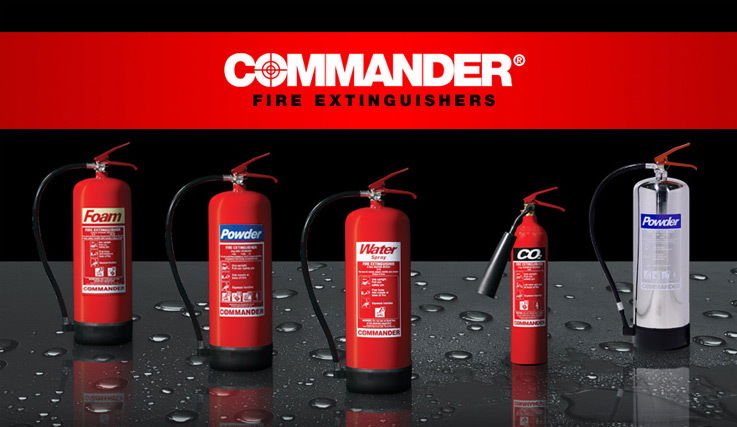Fire Extinguisher Guide

How to choose the best fire extinguisher
The correct fire extinguisher is entirely dependent on the setting and environment it’s about to be installed in. The right extinguisher is the type that’s required for the relevant class of potential fire – there isn’t a single fire extinguisher that’s suitable to tackle every fire.
In this short guide, we take a look at which fire extinguishers are right for differing situations and scenarios.
The best fire extinguishers for the workplace
It’s imperative the correct fire extinguisher is installed for the type of fire risk in the setting – it will vary greatly across industries. Co2 Fire Extinguishers are the most appropriate for offices, schools and hospitals. That’s because carbon dioxide is safe to use on electrical equipment and won’t damage equipment or machinery. Meanwhile, a foam fire extinguisher, which is one of the most commonly used, tackles Class A and B fires and as well as being suitable for offices, schools and hospitals, it’s recommended for garages and workshops. Dry Powder extinguishers are multi-purpose and suitable for Class A (flammable solids), B (flammable liquids) and C (flammable gases) fires. This type of fire extinguisher is best for workshops, garage forecourts and construction sites.
The best fire extinguisher for the home
Cooking appliances were the source of ignition in 48% of accidental dwelling fires in the UK between 2017 and 2018. Electrical distribution and appliances were the source of ignition in 25% of house fires in the same year. For that added peace of mind, it’s wise to have a fire extinguisher to hand in any home. The MULTI CHEM from CommanderEDGE is a great extinguisher for the kitchen and tackling Class F fires (those involving cooking oils and deep-fat fryers). This extremely robust unit is an ultra-high-performance ABF-rated extinguisher, meaning it can tackle fires started by solid materials like paper or textiles and flammable liquids like petrol or oils, as well as those started by cooking oils or deep fat fryers.
The best fire extinguisher for the car
While motorists in the UK are not legally required to carry a fire extinguisher, it is smart to do so. Dry powder and foam fire extinguishers are most commonly carried in cars. For certain types of vehicles, it’s compulsory to carry a fire extinguisher. Haulage vehicles, for example, are required to carry a fire extinguisher relevant to the contents of their load. The ADR regulations state that any vehicle carrying more than 7.5 tonnes of hazardous materials must be equipped with a minimum total of 12kg dry powder extinguishers.
When trying to decipher the best fire extinguisher, it’ll depend entirely on the setting and type of fire risk. There isn’t a single fire extinguisher suitable for all scenarios. Get in touch for expert advice on the best fire extinguisher for your requirements.
Further Details - See our info-links below:
1. Fire Risk Assessment - Block of Flats
2. Fire Risk Assessment - House in Multiple Occupation
3. Fire Risk Assessment - Commercial Premises
Our Fire Safety Risk Assessors/ Fire Safety Managers - Manage All Types Of Premises & Building Occupancy Fire Safety.
Contact Us for your legal, cost-effective ex-fire service, Fire Safety Officer Fire Risk Assessment on: 0800 999 8595.
Fire Risk Assessment Slough - Fire Risk Assessment, Fire Risk Assessment Report, Fire Safety Strategy, Fire Safety Consultancy, Fire Extinguisher Service, Fire Warden Training & Fire Evacuation Drills in Slough, Windsor, Taplow, Maidenhead, Bracknell, Heathrow, Uxbridge, Northolt, Harrow, Wembley, Hounslow, Feltham, Brentford, Farnham Common, Gerrards Cross, Bourne End, Marlowe, Beaconsfield & High Wycombe. MG Fire Safety Group is the trading name of Fire Risk Assessment Slough.